Liberalism Behind Black Power
By Kylee Kim
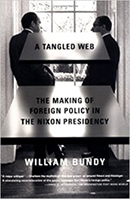
Devin Fergus
Devin Fergus is as assistant professor of modern U.S. and African American history at Vanderbilt University and a senior fellow at Desmos, a policy-centered research institute. He has written on political economy and inequality in America for The New York Times and the Washington Post. Fergus studied at the University of Cambridge and received his Ph.D from Columbia University.
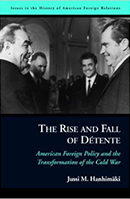
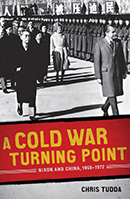
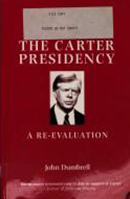
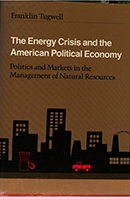
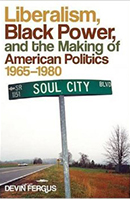
The recalling of history changes depending on the perspective from which it is viewed; however, history has proven that there are many layers of detail behind the story being told as can be seen in the black power movement. Devin Fergus’s Liberalism, Black Power, and the Making of American Politics, 1965-1980 unfolds the complex relationship between liberalism and Black Nationalism and explains the surge in a new right which resulted from events centered around black power in the 1970s. Having taught U.S. and African American history at Vanderbilt University and Ohio State University and received his Ph.D. in American history from Colombia, Fergus is a specialist in Black Nationalism. During the tumultuous presidential eras of Johnson, Nixon, and Carter, America underwent many changes not only in policies regarding African Americans but also in issues that shaped America’s modern politics. As the 1950s and early 1960s nonviolent civil disobedience drew to a close, more radical measures for securing African American equality were taken. Groups like the Black Panther Party and institutions like the Malcom X Liberation University contributed to a growing support for black power. The operational space in which black power functioned and fostered its political authority was liberalism. As Fergus explains, “this book aims to intervene in two dominant schools in the writing of modern American history. The first is that of black power specialists…the second is the school which misinterprets the consequence of [liberal-Black Power] interplay.”1 Fergus gives a detailed account of the events concerning black power in North Carolina and discusses the effects the events had in defining modern politics and relationships between different political groups.
Fergus’s introduction provides an overview of the book’s contents, structure, and main arguments and defines important terms he refers to throughout the book. Fergus invites the reader to contemplate the consequences the liberal intervention in African American politics and supplies different perspectives from various historians to “show how the most recent incarnation of the liberal-nationalist intercourse took shape in the unique time and space of cold war America.”2 By depicting black power as a story of change expanded over the 1970s, Fergus relates the movement to liberalism and nationalism. The first chapter of the book deals with the making of Black Nationalism in North Carolina from 1965-1970 and introduces figures like Howard Fuller, director of Operation Breakthrough (a community self-empowerment program) and founder of the Malcolm X Liberation University, who advocated ending black poverty and who worked with liberals to acquire support for black students’ advancement. Fergus also explains the importance of the student movement at Duke University in initiating reform policies and fostering cooperation between liberal organizations and black education advocates in financial funding of black studies. The student movements were effective because learning institutions throughout the country participated in gaining equal rights for African Americans, nationalizing important issues, and forcing the administrators of universities to take action against prejudice. The turmoil seen on campuses like Duke reflected the larger, governmental aspects of denied equal rights and opportunities for African Americans and depicted how liberal intervention, as seen in the administrators’ response to student protest, was important in furthering Black Nationalism.
Fergus analyzes how the rise of Black Nationalism reinvigorated a white conservative movement as anxious conservatives viewed black power as social unrest. In the second chapter of his book, Fergus writes about the emergence of the Malcolm X Liberation University, which would “provide a framework within which black education could become relevant to the needs of the black community.”3 The university also illustrates the struggle between liberal intervention and institutional autonomy that took place in securing the University’s establishment. After founded, the University experienced hardships as black elite classes had continuing disagreements with Fuller and as financial support diminished. Due to the lack of funding Fuller was convinced to adhere to liberal intervention in reforming the university’s organizational behavior because liberals offered financial support. Fergus’s book supplies a report on constitutional liberalism and the Black Panther Party from 1968-1974 and shows how liberals developed a positive opinion toward Black Nationalism through their involvement in the Black Panther Party.
Chapters four and five expose the acquittal and trial of Joan Little and discuss Black Nationalism and its discontent. Joan Little was convicted of the murder of a white jailer in a defense of sexual assault. This case is important because it depicts the struggle for a cultivated post-civil rights south. It shows how a greater power was given to the people because Little succeeded in relocating her case from Beaufort, North Carolina, a hotbed of Ku Klux Klan activity, to Raleigh, North Carolina where she would be given a more fair trial. Publically it was said that “it is not Joan Little who is on trial, but the racist, sexist judicial system.”4 The case of Joan Little is significant in gaining federal support for racial and gender equality and illustrates liberalism’s ideologies. Although there was an advancement for African Americans throughout the 1970s due to the helping hand of liberalism, there were also pitfalls. Chapter five investigates how nationalists fell victim to the trappings of patriarchy and exaggerated patriotism. Many important leaders in the black community, due to financial reasons, answered to white corporations and lost their freedom to exercise control over the activities of black nationalists while members of the Black Panther Party were responsible for many sexual scandals, countering the call for more equality. Fergus describes that, “Loyalty to black nationalism and to women’s rights within the black community could be seen as contradictory,” due to the surfacing of scandals concerning sexual exploitation and fraud within the Black Panther Party.5
The last two sections of the book examine how a more accommodating nationalism sparked a conservative resurgence. Fergus discusses Soul City, a black-owned and operated town in North Carolina that Republicans believed would help create a new market for goods. Although Soul City was an attempt to generate more rights and economic opportunities for African Americans, there was a white power backlash as, “soul city struck fear in the hearts of white liberals.”6 A conservative resurgence occurred because right wing whites were afraid of the growing power of African Americans and the social and political unrest in the country. This effected the black power movement because many African American leaders became cautious and fearful of radical participation as involvement in black power might elicit political penalties from established parties. Eventually, black leaders’ alliances with white corporations made them accountable to a white power structure. The conclusion finished with the idea that the ability for black power to succeed in America depended not on verbal persuasion but on a stable financial persuasion. Fergus makes another point at the end of his book which can be summed up in his quote, “the characters and settings of the nationalist-liberal interplay may invariably change, but the play’s structure and for stay surprisingly familiar: the rise of indigenous ethnic or regional nationalist movements within Western liberal democracies who call for self-determination. black power is no exception to this leitmotif.”8
In Liberalism, Black Power, and the Making of American Politics, 1965-1980, Fergus’s central thesis is that liberalism created an operational space for black power and that liberals’ participation helped to reform black power. Fergus gathers most of his evidence from the events, groups, and institutions in North Carolina from 1965 to 1980. He uses personal diaries, interviews, corporate records, and various historians’ viewpoints to establish support for his thesis. Fergus defines liberalism as “the twentieth-century American ideology that manifests in individuals, institutions, and policies that promote greater social and economic equality.”7 Liberalism, as can be seen through the Joan Little Case, and the Malcolm X Liberation University was a critical factor in sustaining Black Nationalism and was used to provide economic opportunities for black power leaders to expand their activities. He concludes that, “nationalisms are known to take the shapes of their container, and in the United States that container was a liberal democracy.”9 Fergus’s book also looks at how the rise of radical black power groups and such as the manifestation of Soul City create a backlash among white conservatives and analyzes how this helped shape American politics during the Cold War era. Fergus’s purpose in writing this book is the “show how liberalism helped to bring a radical civic ideology back from the brink of political violence and social nihilism, and the price liberals paid in the process.”10
Devin Fergus, an expert in African American studies, is also a senior fellow at Desmos, a policy-centered research institute. His ethnicity is African American which has influenced his area of study and his book’s thesis. Fergus focuses on the historical mechanisms that have driven inequality not only throughout United States history but also in present-day America and economic effects of changing politics between different racial and economic groups. Devin Fergus was impacted by the ideas of new left historiography and because his book is relatively recent, postmodern ideological influences must be taken into account. Fergus explores the twin historiographies of black power specialists and American history generalists in his conclusion. Fergus would like scholars to be bold in confronting the truth that black power received substantial monetary and operational support from the liberal establishments. He also expands upon nationalist movements and their similarity with the African American political events of the 1970s. He states that, “all were region-based or ethnic nationalist movements…and all emerged within contemporaneous liberal democracies.”11 Devin Fergus has studied at Cambridge University and Colombia University so his ideals may have been influenced by the education he has received at the prestigious institutions. As he has written for several newspapers like The Guardian and the New York Times Fergus has focused his findings of racial inequality in how it has had an economic impact on American society. His tendency to relate historical events to economic patterns is even more visible in his second book, Land of the Fee, which documents the widening financial gap between Americans.
The two reviews that examine Devin Fergus’s Liberalism, Black Power, and the Making of American Politics, 1965-1980, discuss how Fergus outlined the complex relationship between white liberals and Black Nationalists in North Carolina’s progressive urban areas. The first review was written by Stephanie Schroeder, a professor at North Carolina State University, and in it she states, “Fergus offers a fresh analysis of black power’s contested history. Fergus explicitly reveals through a variety of instances, such as the formation of Malcom X Liberation University, the founding of Soul City, and black power’s triumph in the Joan Little case, how liberalism- rather than being radicalized-worked to transform Black power into a reformist rather than revolutionary movement,” Schroeder praises Fergus’s work and talks about how Fergus’s Liberalism, Black Power, and the Making of American Politics, 1965-1980, is able to convince the reader of his argument that can be applied in a variety of global contexts12. The second review was done by Jama Lazerow, a professor at Wheelock College, and is not as amicable as the first review. In it he states that, “Fergus, a political historian with a keen interest in historical sociology, law, and theory, is after some very big game here.”13 Lazerow explores Fergus book by focusing on the important figures present in the book, but instead of acclaiming Liberalism, Black Power, and the Making of American Politics, 1965-1980, Lazerow criticizes parts of it. He writes, “the extent that we can give Fergus’s evidence…is surprisingly thin and problematic, in my view.”14 Although Lazerow points out the flaws of the book, he also points out the complexity of the topic Fergus explores. The two reviews written on Fergus’s book give an explicit account of the events the book talks about and discusses the Fergus’s thesis.
The topic tackled in Devin Fergus’s Liberalism, Black Power, and the Making of American Politics, 1965-1980 provides an extremely detailed account of the Black Nationalism events that occurred in urban progressive areas of North Carolina and most importantly discusses the effects they had on shaping American politics. Fergus’s thesis is well supported throughout his book with ample evidence of his claim that white liberalists provided an operational space for black power and that the seemingly radical black power movement of the late 1960s and early 1970s became subject to conformity and responsible to white corporations. Fergus’s writing style is straightforward, and although dry at points throughout his novel always relates back to his thesis and sustains the reader’s interest. This book allows the reader to get a broader understanding of the significance of the interplay between two racially divided political parties, and Fergus provides keen insight into the influence the events of the 1970s would have on later American politics. Liberalism, Black Power, and the Making of American Politics, 1965-1980 is a well-written book because it provides a time frame that allows the reader to obtain a thorough understanding of Black Nationalism, not only a brief snapshot of history. The book emphasizes the 1970s but also provides background information rooted from 1965 and future relevancy extending the time period to 1980. This book has significant merit to it as it provides information from “recently discovered taped conversations, never before transcribed or published,” but also supplies records from state agencies and, church, foundational, and corporate records.15 Structurally, the book is well-organized because it is divided into 4 major chapters but also provides subsections within each chapter for the major ideas Fergus examines. Liberalism, Black Power, and the Making of American Politics invites the reader to consider how political relationships effected black power and provides insight into the events that came to define Black Nationalism.
The position the author takes on the 1970s being a time of severe crisis in the United States is that within Black Nationalism there were times of ruffled radicalism in growing student movements and institutions such as the Malcolm X Liberation University that might have led to increase political and social tension and unrest, but eventually was put down by the intervention of white liberalism. Although the 1970s may have seemed like a time period of turmoil in the hearts of white conservatives, it was not very radical in the African American perspective because eventually Black leaders joined hands with white corporations and became financially obligated to them. The question of severe crisis depends on the point of view in which it is discussed and through Liberalism, Black Power, and the Making of American Politics, 1965-1980 the 1970s was not as radical as history remembers it to be. The author portrays the 70s as a continuation of the 60s in that black power’s first organizational movements took place in the late 1960s and continued into the 1970s. Fergus conveys how the late 1960s was more radical in terms of activity than the 1970s. He states, “After the intensity of the 1960s revolution and racial romanticism cooled, we can see what became of black power.”16 The Joan Little case provides an example of the success of black power within liberalism’s space and throughout the book Fergus shows how the 1970s was a time of African American political advancement.
The relationship between Black Nationalism and white liberalism is one of great complexity and is unfolded in Devin Fergus’s Liberalism, Black Power, and the Making of American Politics, 1965-1980. In this book, Fergus argues that “even those most assumed to be essentialists-cultural nationalists-engaged liberalism.”17 In sum, Fergus’s thesis is profound in its boldness and the book supplies evidence of the relational unfolding that took place during the 1970s.
Footnotes:
- Fergus, Devin. Liberalism, Black Power, and the Making of American Politics: 1965-1980. Athens: University of Georgia Press, 2009. 232
- Fergus, Devin. 12
- Fergus, Devin. 38
- Fergus, Devin. 153
- Fergus, Devin. 195
- Fergus, Devin. 200
- Fergus, Devin. 8
- Fergus, Devin. 263
- Fergus, Devin. 263
- Fergus, Devin. 10
- Fergus, Devin. 263
- Lazerow, Jama. “The Hidden Transcript of the Liberal-Black Power Dialogue.” Rev. of Book. (n.d.): n. pag. Web. 25 May 2015.
- Schroeder, Stephanie. Rev. of Book. (n.d.): n. pag. Web. 25 May 2015.
- Schroeder, Stephanie. Rev. of Book. (n.d.): n. pag. Web. 25 May 2015.
- Fergus, Devin. 5
- Fergus, Devin. 12
- Fergus, Devin. 4
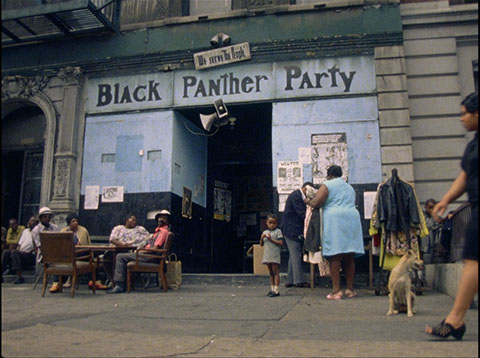
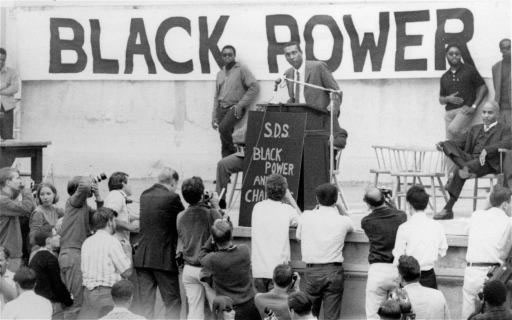
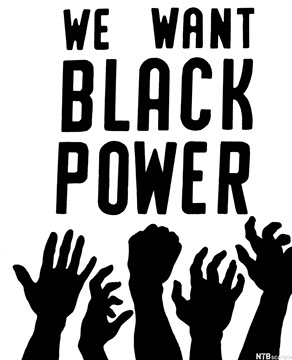
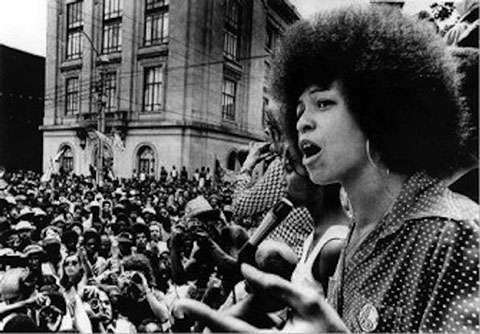
4 - 4
<
>